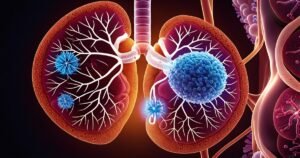Did you know that diarrheal disease affects over 2 billion people globally each year, leading to deaths? This common ailment, such as severe diarrhea, can disrupt daily life, causing discomfort, dehydration, and chronic diarrhea. But fear not, understanding its causes, risk factors, history, and health information, and knowing how to manage it can make a world of difference. Stay tuned to learn how simple lifestyle adjustments, clean water, and proper hydration can help combat chronic diarrhea effectively.
Key Takeaways
Stay hydrated by drinking plenty of fluids to prevent dehydration, especially during episodes of diarrhea.
If diarrhea persists for more than a couple of days or is accompanied by severe symptoms like high fever or bloody stools, seek medical attention promptly.
Practicing good hygiene, such as washing hands thoroughly and avoiding contaminated food and water, can help prevent diarrhea.
Diarrhea in children may require special attention due to their vulnerability to dehydration; consult a healthcare provider for appropriate management.
Early diagnosis through medical evaluation is crucial to determine the underlying cause of diarrhea and tailor treatment accordingly.
Effective treatment options for diarrhea include oral rehydration solutions, over-the-counter medications, and, in some cases, prescription antibiotics.
Understanding Diarrhea
Definition and Types
Diarrhea is characterized by watery stools and increased frequency of bowel movements. It can be classified into various types such as chronic diarrhea, severe diarrhea, bloody diarrhea, and infectious diarrhea.
Short-term vs Long-term
Short-term diarrhea, known as acute diarrhea, typically lasts for a few days due to infections or food poisoning. On the other hand, persistent diarrhea, also called chronic diarrhea, lasts for more than two weeks.
Common Causes
One of the common causes of diarrhea is food poisoning, often resulting from consuming contaminated food or water.
Dehydration is a significant risk factor for developing diarrhea, especially when experiencing severe symptoms like vomiting.
Infectious agents such as viruses, bacteria, and parasites can lead to infectious diarrhea by affecting the gastrointestinal system.
Signs and Symptoms
Individuals with diarrhea may experience frequent trips to the bathroom and urgency in passing stools.
Abdominal cramps and pain are common symptoms associated with this condition.
In severe cases, individuals may notice blood in their stools, indicating a more serious underlying issue.
Treatment Options
When dealing with acute diarrhea, it’s crucial to focus on rehydration by consuming electrolyte-rich fluids like oral rehydration solutions. For chronic cases, identifying and addressing the root cause is essential for effective management.
Common Causes
Bacterial Infections
Bacterial infections, such as from E. coli or salmonella, are common causes of diarrheal disease. These pathogens disrupt the intestines, leading to loose stools.
Food Intolerance
Food intolerance, especially to lactose or gluten, can be a leading cause of diarrhea and chronic bowel disease. In some individuals, consuming these foods triggers digestive issues.
Traveler’s Diarrhea
Traveler’s diarrhea, a diarrheal disease, is a common problem for tourists visiting certain countries. Consuming contaminated food or water leads to this condition.
Parasitic Infections
Parasites like Giardia can also result in diarrhea. These infections, including infectious diarrhea, affect the digestive system, causing symptoms like stomach cramps and loss of appetite.
Viral Infections
Viral infections, including rotavirus and norovirus, can cause diarrheal outbreaks. These viruses spread easily in crowded places.
Recognizing Symptoms
Common Signs
Symptoms of diarrhea often include abdominal pain, cramps, and nausea. These discomforts are typically early indicators of an impending episode of acute diarrhea. It’s crucial to monitor these signs closely.
Dehydration is a common complication associated with diarrhea. Recognize the signs of dehydration, such as dry mouth, dizziness, and decreased urine output. Replenishing lost fluids is essential in managing this condition effectively.
Serious Indicators
In severe cases, symptoms like bloody stools and high fever should not be ignored. These are red flags that require immediate medical attention to prevent further complications. Timely intervention can significantly impact recovery.
Pros:
Early recognition can lead to prompt treatment and better outcomes.
Understanding symptoms helps in differentiating between mild and severe cases.
Cons:
Ignoring symptoms can lead to prolonged discomfort and potential health risks.
Misinterpreting signs may delay necessary medical care, worsening the condition.
Addressing Urgency
Recognizing the urgency of addressing certain symptoms is crucial in managing diarrhea effectively. If you experience persistent abdominal pain or notice blood in your stool, seek medical advice promptly. Delaying treatment can exacerbate the situation.
Understanding the impact of diarrhea on nutrient absorption is vital for overall health maintenance. Prolonged episodes can cause deficiencies due to impaired absorption in the digestive tract. Proper management and monitoring are essential for preventing complications.
Diagnosis Steps
Physical Exams
During the diagnosis of diarrhea, healthcare providers begin by conducting thorough physical exams to assess the patient’s overall health and well-being. These exams involve checking vital signs, such as temperature and blood pressure, to identify any underlying issues that may be contributing to the diarrhea.
Stool Studies
Stool studies play a crucial role in diagnosing diarrhea. By analyzing a stool sample, healthcare professionals can determine the presence of infection, inflammation, or other abnormalities in the digestive system. These studies help identify specific pathogens causing the diarrhea, guiding appropriate treatment strategies.
Blood Tests
In addition to stool studies, blood tests are commonly used to diagnose diarrhea. These tests can reveal important information about the body’s overall health, such as electrolyte levels and markers of inflammation. Abnormal results may indicate an underlying condition that requires further investigation and management.
Imaging Tests
To further investigate the root cause of diarrhea, healthcare providers may recommend imaging tests such as X-rays or CT scans. These tests allow for detailed visualization of the gastrointestinal tract, helping identify structural abnormalities, tumors, or other issues that could be contributing to the symptoms.
Colonoscopies
In some cases where the cause of diarrhea remains unclear, a colonoscopy may be performed. During this procedure, a flexible tube with a camera is inserted into the colon to examine its lining for signs of inflammation, ulcers, or other abnormalities. Colonoscopies are especially useful in detecting conditions like inflammatory bowel disease or colorectal cancer.
Effective Treatments
Age Considerations
Patients of different age groups may require specific treatments for diarrhea. For infants, rehydration therapy is crucial due to their vulnerability to dehydration. Pediatric rehydration solutions are ideal for replenishing lost fluids and electrolytes in babies.
In older children and adults, over-the-counter drugs like loperamide can help alleviate symptoms by reducing bowel movements. However, it’s essential to consult a doctor before giving any medication, especially in severe cases.
Fluid Replacement Importance
Maintaining adequate hydration is key in managing diarrhea. Rehydration therapy involves consuming clean water or oral rehydration solutions to replace lost fluids and electrolytes. This helps prevent complications associated with dehydration.
For patients with severe dehydration, intravenous fluids administered by healthcare professionals are necessary to restore the body’s fluid balance quickly. Regular intake of drinks like clear broths, herbal teas, or diluted fruit juices can also aid in rehydration.
Antibiotics for Bacterial Infections
In cases where diarrhea is caused by bacterial infections, antibiotics may be prescribed by doctors. These medications target the specific bacteria responsible for the infection and help patients recover faster. However, antibiotics are not suitable for viral or parasitic causes of diarrhea.
Before prescribing antibiotics, doctors may perform diagnostic tests to identify the underlying cause of diarrhea. Stool samples are commonly analyzed in labs to determine the presence of bacteria or parasites. The results guide healthcare providers in selecting the most effective treatment approach.
Preventing Complications
Timely Treatment
Health care providers emphasize the importance of seeking treatment promptly to prevent complications like dehydration. If left untreated, diarrhea can lead to severe dehydration, especially in vulnerable populations such as children and the elderly. Rehydration is crucial in managing diarrhea effectively.
Seeking medical advice from a health care provider is essential if diarrhea persists for more than a couple of days or if there are signs of severe dehydration such as decreased urination, dizziness, or extreme thirst. Zinc supplementation may also be recommended by healthcare professionals to reduce the duration and severity of diarrhea episodes.
Hydration Strategies
Maintaining adequate hydration is an important aspect in preventing complications associated with diarrhea. Drinking plenty of fluids, such as water, oral rehydration solutions, and clear broths, helps replace lost fluids and electrolytes. Avoiding beverages high in sugar or caffeine is advisable during episodes of diarrhea.
To prevent dehydration during diarrhea, it is recommended to consume small amounts of fluid frequently rather than large quantities at once. Replacing lost fluids with an appropriate balance of water and electrolytes is key to preventing complications. In cases where diarrhea persists, consulting a healthcare provider for further guidance is crucial.
Traveler’s Diarrhea Prevention
For travelers, preventing dehydration due to diarrhea is vital when visiting regions with unsafe drinking water or poor sanitation practices. Ensuring access to safe drinking water and practicing good hygiene habits can significantly reduce the risk of traveler’s diarrhea. Consuming only bottled or boiled water and avoiding ice cubes or uncooked foods can help prevent gastrointestinal issues while traveling.
Packing oral rehydration salts in a travel first aid kit can be beneficial in case of diarrhea onset during travel. Being cautious about food choices and opting for freshly prepared meals from reputable establishments can minimize the chances of developing traveler’s diarrhea. Staying hydrated by regularly consuming fluids throughout the journey is essential to prevent complications.
Outbreak Control
Hygiene Practices
Hand washing is crucial in preventing the spread of bacterial infections that cause diarrhea. Proper sanitation facilities help reduce contamination risks.
Maintaining clean water sources and promoting hygiene practices such as regular hand washing can significantly decrease the likelihood of diarrheal outbreaks.
Public Health Interventions
Public health interventions often focus on improving sanitation, promoting safe water consumption, and educating communities about proper hygiene practices.
Antibiotic use may be necessary for certain cases of bacterial-induced diarrhea, but it’s essential to avoid unnecessary antibiotic prescriptions to prevent antibiotic resistance.
Contaminated Food and Water
Contaminated food and water are common sources of bacterial infection leading to diarrheal outbreaks. Proper food handling and storage are critical preventive measures.
Boiling or treating water before consumption can eliminate harmful bacteria, reducing the risk of contracting diarrhea from contaminated sources.
When to Seek Help
Severe Symptoms
Severe symptoms of diarrhea can be a serious problem, requiring immediate medical attention. If you experience persistent vomiting, high fever, or bloody stools, seeking help is crucial.
The presence of blood in the stool is a red flag that should not be ignored. It could indicate an underlying condition that needs prompt evaluation and treatment by a healthcare professional.
Dehydration Risk
When diarrhea is accompanied by excessive thirst, dry mouth, dark urine, or dizziness, it may lead to dehydration. In such cases, seeking medical help becomes essential to prevent complications.
Proper hydration is crucial in managing diarrhea. Drinking clear fluids like water, broth, or oral rehydration solutions can help replace lost fluids and electrolytes.
Underlying Conditions
Certain underlying conditions such as chronic illnesses, weakened immune system, or recent travel to high-risk areas can exacerbate diarrhea symptoms. Seeking medical assistance promptly can aid in diagnosing and treating any potential complications.
If you have been exposed to contaminated food or water sources during travel and develop severe diarrhea, consulting a healthcare provider is vital for appropriate management.
Infants and Children
In infants and young children, persistent diarrhea can quickly lead to dehydration due to their smaller body size. Parents should monitor for signs such as sunken eyes, decreased urine output, or irritability and seek medical help promptly if these symptoms arise.
Rehydration solutions specially formulated for children are available and can be administered under medical guidance to prevent dehydration.
Elderly Population
The elderly are more susceptible to dehydration from diarrhea due to age-related changes in the body. If an older adult experiences prolonged diarrhea along with weakness or confusion, seeking medical assistance is crucial to prevent complications.
Managing in Children
Pediatric Considerations
Young children require special considerations when managing diarrhea. Their smaller bodies can quickly dehydrate, making it crucial to address symptoms promptly.
Pediatric dosages for medications differ from those for adults. Always consult a healthcare provider before administering any treatment.
Challenges in Treatment
Managing diarrhea in children poses unique challenges compared to adults. Due to their developing immune systems, young children are more susceptible to infections leading to diarrhea.
Children may struggle to communicate their symptoms effectively, requiring caregivers to be vigilant for signs of dehydration and discomfort.
Treatment Approaches
When treating diarrhea in children, focus on rehydration as a priority. Oral rehydration solutions specifically designed for pediatric use are essential to replenish lost fluids and electrolytes.
Encourage child-friendly foods like bananas, rice, applesauce, and toast (BRAT diet) to help ease digestive discomfort.
Closing Thoughts
Now that you have a comprehensive understanding of diarrhea, its causes, symptoms, diagnosis, treatment, prevention, and management, you are better equipped to handle this common condition. Remember to seek medical advice if symptoms persist or worsen, especially in children, to prevent complications. By staying informed and taking necessary precautions, you can effectively manage diarrhea and safeguard your health.
Remember, your health is essential. Stay proactive in recognizing symptoms, seeking appropriate treatment, and following preventive measures. By doing so, you can minimize the impact of diarrhea on your well-being and lead a healthier life.
Frequently Asked Questions
Is diarrhea a common condition?
Yes, diarrhea is a common condition that most people experience at some point in their lives. It is usually not serious and can be caused by various factors such as infections, food intolerances, or stress.
What are the common causes of diarrhea?
Common causes of diarrhea include viral or bacterial infections, food poisoning, reactions to medications, food intolerances, and stress. It can also be triggered by consuming contaminated food or water.
How can I recognize the symptoms of diarrhea?
Symptoms of diarrhea typically include frequent loose or watery stools, abdominal cramps, bloating, nausea, and sometimes fever. Dehydration signs like dry mouth, dark urine, or dizziness may also occur.
When should I seek medical help for diarrhea?
Seek medical help if you experience severe dehydration signs like extreme thirst, very dark urine, dizziness upon standing up, or a rapid heartbeat. Also consult a doctor if diarrhea persists for more than two days in adults or 24 hours in children.
What are effective treatments for diarrhea?
Treatment for diarrhea involves staying hydrated with water and electrolyte-rich fluids. Over-the-counter medications like loperamide can help manage symptoms. In severe cases or if accompanied by other concerning symptoms, consult a healthcare provider for proper diagnosis and treatment plan.


